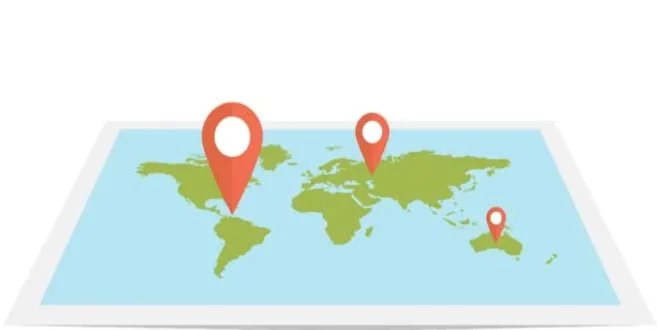While you struggle with schoolwork, you must have wondered, is AP human geography worth it? Should you choose another science over it? What benefits does it offer you? This article is the right to help you answer all these questions.
High school can be challenging academically, especially if you don’t have the right guide to help you with the course choices.
AP human geography is a popular choice for most people, but is it worth the effort, and how can you pass it? Let us get into the details ad find out;
Is AP Human Geography Worth It?
Taking AP Human Geography is worthwhile. It thoroughly explains human populations, civilizations, and their global effects. Numerous disciplines, including urban planning, international relations, and environmental studies, can benefit from this knowledge.
Additionally, receiving college credit from AP tests can help students in their higher education save time and money.
The understanding also develops analytical abilities, critical thinking, and a global perspective. AP Human Geography can provide valuable views and opportunities, making it worthwhile for many students to explore.
What Is AP Human Geography?
High school students can take an advanced placement course called AP Human Geography, which focuses on studying human geography. It studies the patterns, processes, and interactions between individuals and their environment.
Population, migration, culture, political geography, urbanization, and economic development are some topics in this course.
AP Human Geography aims to give students a thorough grasp of how human populations have changed over time and continue to influence our environment.
The course strongly emphasizes analytical skill development, spatial analysis, and critical thinking. Students learn to decipher maps, analyze data, and draw links between phenomena.
They look at how human activities are distributed geographically, how they affect the environment, and how social, cultural, economic, and political issues influence society.
Students understand global issues, regional differences, and the interconnectedness of human societies by studying AP Human Geography.
They develop spatial literacy to comprehend and navigate the complexity of our interconnected world. Students taking AP Human Geography will have a solid foundation for future studies in geography, the social sciences, and related disciplines.
Additionally, it allows them to think critically and from a global perspective, preparing them to be informed and active citizens in our increasingly interconnected and complex world.
Understanding the Purpose And Benefits of AP Human Geography
The most important question for a student should be why they are reading about a course. What benefits does it offer them and the people around them?
Understanding these aspects makes learning easier and more worthwhile, so let’s take a look at AP human geography;
1. Thorough knowledge of human societies. AP The study of human geography attempts to thoroughly understand how human populations have changed the world.
By examining various topics, students learn about the social, cultural, economic, and political forces that shape human societies. Thanks to this knowledge, they can gain a global perspective and comprehend how various communities and regions are connected.
2. Development of Critical Thinking and Analytical Skills. The potential of AP Human Geography to foster analytical and critical thinking abilities is one of its main advantages.
Students gain the ability to evaluate information, formulate persuasive arguments, and think critically about complex issues. These competencies are helpful in various fields, including the social sciences, environmental studies, and business.
3. Knowledge of spatial relationships. AP Students that study human geography develop their spatial awareness. They learn to recognize patterns, analyze spatial distributions, and understand the impact of physical geography on human activities.
Understanding challenges like resource distribution, population density, urban planning, and environmental sustainability requires strong spatial literacy.
4. College and career preparation. AP Human Geography can give students a strong foundation for their future academic and professional endeavors.
A student’s college applications can benefit from the challenging curriculum and critical thinking abilities they acquire from AP Human Geography, demonstrating their aptitude for engaging with complex material.
5. Real-World Applications. Another benefit of AP Human Geography is its emphasis on real-world applications. The course encourages students to explore global issues and analyze their impact on human societies.
Comparing AP Human Geography to Other Social Sciences
Some social sciences compete for the top spot with AP human geography, and you might want to know why you should choose one. Here is a detailed comparison to give you a basic outline that should help make your decision easier;
1. AP Human Geography vs. History. AP Human Geography takes a different tack than AP History, which focuses on analyzing historical events and their effects on society.
AP Human Geography focuses on the present and future, exploring current issues and their spatial implications; thus, it offers more information.
A broader perspective for comprehending the processes that drive societies is clear in AP Human Geography, which supplements history by examining the spatial patterns of human activity and their interactions.
2. Economy vs. AP Human Geography. The primary areas of study in economics are markets, production, and resource allocation. In contrast, AP Human Geography considers the social, cultural, and political variables influencing economic activities.
It looks at how economic processes, including industrialization, trading patterns, and development gaps, are distributed spatially. This interdisciplinary viewpoint improves students’ capacity to assess financial difficulties in the context of more significant societal issues.
3. Interdisciplinary Connections. AP The fact that Human Geography is so interdisciplinary is a benefit. It uses several social sciences, including anthropology, sociology, political science, and environmental studies.
Using this multidisciplinary approach, students can investigate the intricate relationships between human communities, cultures, and the natural world.
4. Spatial viewpoint. The spatial view of AP Human Geography is one of the course’s distinctive contributions. While other social sciences may cover related topics, AP Human Geography concentrates on how phenomena are distributed spatially.
It highlights how vital proximity and spatial relationships are in influencing human behavior. AP Human Geography improves students’ comprehension of social processes and their ramifications for various places by considering spatial dynamics.
AP’s Complementary Nature History, economics, and other social sciences are still valuable, and neither are replaced nor diminished by human geography. Instead, it adds to these fields by offering new viewpoints and analytical techniques.
AP Through the prism of human geography, students can examine societal challenges, comprehend global dynamics, and hone their critical thinking abilities.
Tips for Success in AP Human Geography
If you decide to take AP human geography, you must take every step necessary to ensure you ace your tests and get the best colleges. So what tips can you use to help improve your grades?
- Participate fully in class. Ask questions, participate in discussions, and take careful notes. During lectures, actively participating in the subject will aid in your understanding of the concepts and aid in your ability to recall the information.
- Read the textbook. It is an essential tool for AP Human Geography. Thoroughly read the prescribed chapters, make notes, and highlight important passages. Try to comprehend the key ideas, theories, and case studies discussed in the textbook.
- Use more resources. Use additional resources to augment your learning, including study aids, internet articles, documentaries, and instructional videos.
These resources can offer additional justifications, illustrations, and examples from everyday life to help you better understand complex subjects.
4. Develop your map abilities. Interpreting and evaluating maps requires spatial thinking; therefore, practice these skills.
Learn about several map kinds, such as topographic, thematic, and choropleth maps. Pay close attention to the scale, symbols, and legends to gather pertinent information.
5. Review important vocabulary. The course’s language is unique to AP Human Geography.
To study and learn important terms, use flashcards or use online resources. Your performance on tests and in essays will increase if you comprehend and use the word correctly.
6. Examine case studies. Case studies that offer actual instances of ideas and theories are frequently examined in human geography. Practice studying and discussing case studies to improve your capacity for applying course material to real-world circumstances.
7. Exam practice. Exam practice will help you become familiar with the structure and material of the AP Human Geography exam. Review the different questions, and then practice responding to them in the allotted time.
8. Ask for assistance when necessary. Don’t be afraid to ask for help if you have trouble understanding a particular idea or subject. Ask your teacher, other students, or online resources for clarification.
9. Review and revise frequently. Repeated review is essential for memory retention. Schedule time each week to go over past material, make sure you grasp it and draw connections between various ideas.
Conclusion
AP human geography is worth it and can help improve your college application. Additionally, you learn numerous skills from AP human geography that are important in other disciplines, and they will give you a head start.
AP human geography offers a broad spectrum of subjects, making it beat the other disciplines. It has elements from nearly every field, which makes students that take it adapt more favorably to other social sciences.
 Being Human
Being Human





